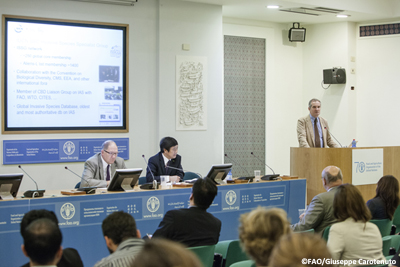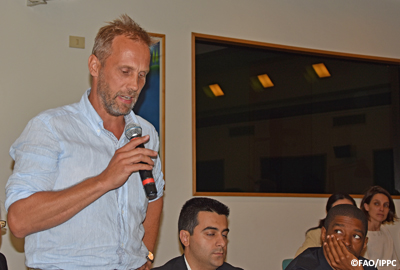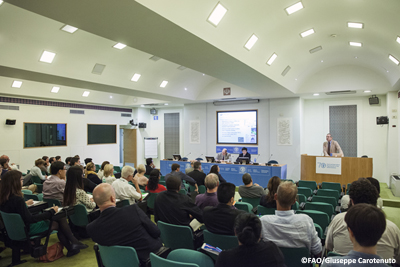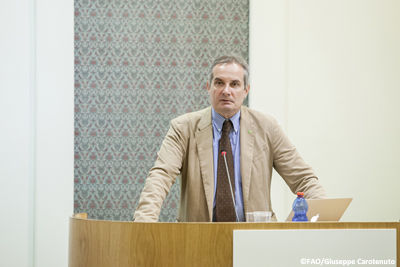The IPPC Seminar on Invasive Alien Species: Trends and Patterns of Invasion Global Impacts and Possible responses
Posted on Tue, 29 Sep 2015, 16:36

The IPPC Seminar on Invasive Alien Species: Trends and Patterns of Invasion, Global Impacts, and Possible responses, took place in FAO headquarters on 24 September 2015. Dr Piero Genovesi, Chair IUCN Invasive Species Specialist Group, was invited to make the presentation. The Seminar was chaired by Dr. Jingyuan Xia, the IPPC Secretary, and had more than 60 participants from a number of different departments in FAO, among but not limited to fisheries, land and water, food safety and forestry. The French Ambassador, His Excellency Mr. Tomasi and some staff from China Mission to FAO were also present at the Seminar.
In his presentation, Dr. Genovesi illustrated the invasion trends by invasive alien species on a global scale, as well as the main patterns of their arrival, establishment and spread, based on the latest scientific evidence. The seminar clearly showed how invasive species affect agriculture, livestock, fisheries, forestry, land and water, and human livelihood in general, as in the case of the water hyacinth which upon invading African and Asian water courses, limited transport, affected fisheries, reduced water resources in addition to increasing the prevalence of malaria. Other examples were presented outlining the impact caused by invasive species on global biodiversity (for instance, the introduction of earth worms in North America; the ice plant Carpobrotus spp. in Europe, Prosopis spp. in Africa, and predators on islands).
All these negative effects usually have a tremendous negative impact on economies. It is estimated that in Europe alone, invasive species account for losses of over Euro 12.5 billion/year. He underlined that Phytosanitary Measures play more and more importance in promoting sustainable development on the World.
Dr Genovesi explored trends supported by relevant statistics and real life cases. He gave the interesting example of the rat - common in the entire world apart from Alberta, Canada - and indicated that stakeholders engagement was crucial in preventing the rat in Alberta.
Support material
The presentation of the Seminar. The video of the Seminar in English only. Pictures of the Seminar.





